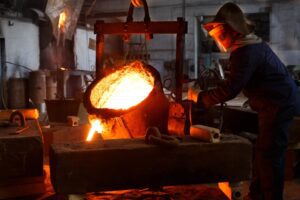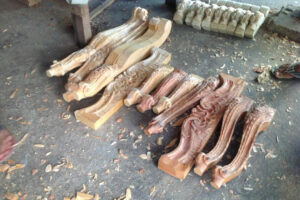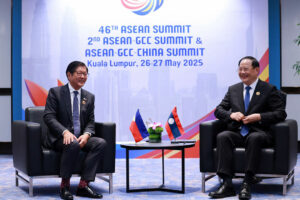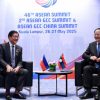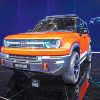THE 17% tariff the US is poised to charge Philippine goods, while favorable compared to rest of the region, is not enough to overcome Vietnam’s cost advantage in furniture, the Chamber of Furniture Industries of the Philippines (CFIP) said.
CFIP Director General Ajun L. Valenzuela told BusinessWorld that the Vietnam price advantage over equivalent Philippine goods is about 40%.
“Vietnam’s prices are much cheaper,” he said in a phone interview, adding: “our price difference with Vietnam is around 40%.”
Vietnam’s furniture exports totaled $16 billion in 2024, against Philippine exports of $200 million.
Vietnamese goods will be charged a 46% tariff starting July if it does not negotiate more favorable terms.
The tariff differential “is also good for us because it will make our prices at par with the Vietnam price, but it is not a solution,” he added.
The so-called reciprocal tariffs imposed on US trading partners announced in early April have been suspended for 90 days. In the interim, the US will charge most trading partners a 10% baseline rate.
According to Mr. Valenzuela, the Philippines still has an opportunity “to attract US buyers seeking alternatives to Vietnamese suppliers.”
“We can rely on our strengths: the unique craftsmanship, the indigenous materials, and the reputation or quality… especially in niche and premium segments,” he added.
The US is the largest export destination of Philippine furniture, accounting for $99 million, or 49.7% of the total. The other top markets include the Netherlands, Japan, Germany, and France.
He said it is possible that Singapore, which was assigned a 10% reciprocal tariff, “may act as a re-export hub for Vietnamese furniture.”
“We know for a fact that Singapore is not a furniture manufacturing country, so they sourced before from China, and now they will be sourcing from Vietnam. So, it potentially dilutes the Philippines competitive edge if rules of origin are not strictly enforced,” he added.
“There is also a risk that Vietnamese and Chinese furniture, now less competitive in the US, could be redirected to the Philippines,” he said.
“This could lead to import flooding, increased competition, and downward pressure on prices here,” he added.
The Philippine cost disadvantage lies mainly in labor, he said.
“The Philippine average monthly manufacturing wage is significantly higher than Vietnam’s. In the Philippines it is $420-$450, while Vietnam’s labor cost is only $300-$350,” he said.
“Labor cost makes it difficult for Philippine producers to compete on price, especially for large-scale commoditized orders,” he added.
He said the industry is also disadvantaged in terms of scale, with Filipino small and medium enterprises unable to expand.
He said high electricity costs are also a concern for the furniture sector, along with the sourcing of raw materials.
“Vietnam benefits from proximity to large plantations and easy access to imported timber through established supply chains, while we rely on imported wood,” he said.
He said that the exemption of wood and wood products under the new US tariff regime will allow Philippine manufacturers to import sustainable and certified solid wood from the US at a very competitive rate.
He said establishing Philippine brands in the US market will require sustained investment in marketing, compliance, and relationship-building. — Justine Irish D. Tabile

